Simplifying Life Insurance in India
12 Developmental Milestones of a 8 Month Old Baby
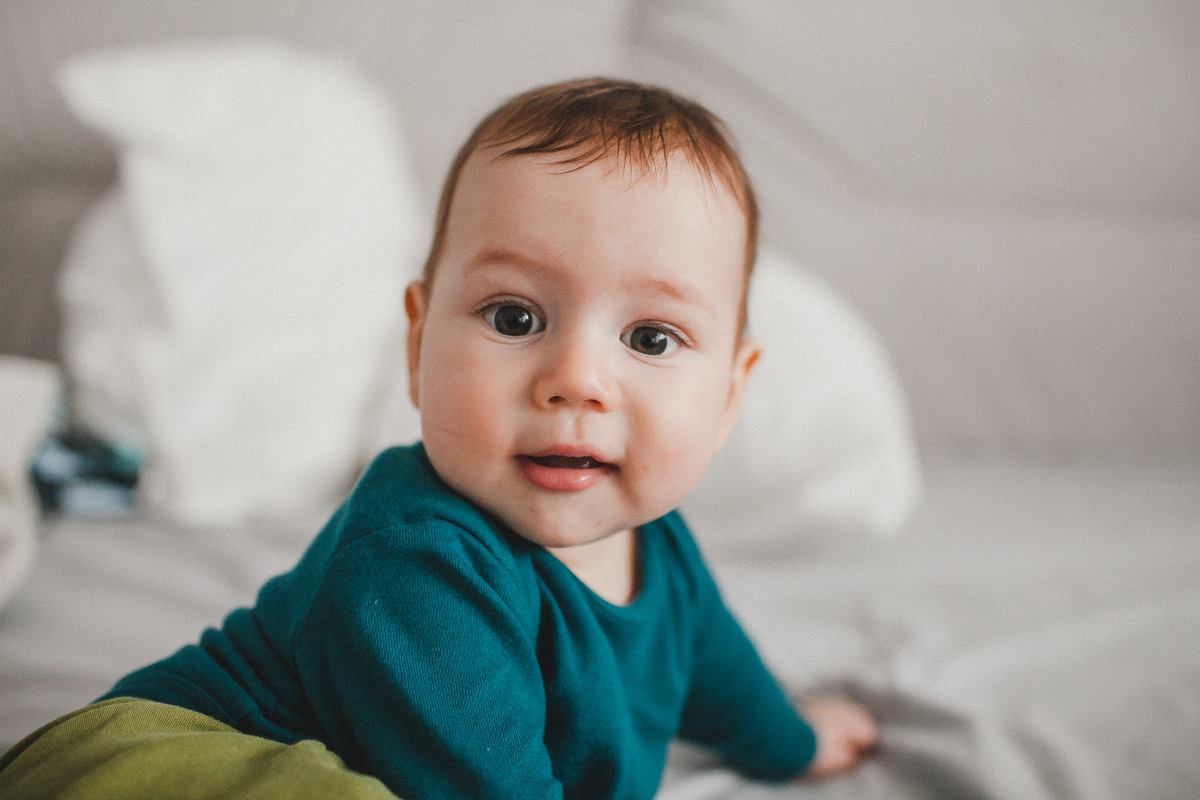
Eight year olds grow fast and reach various milestones within a few days. All parents want the best for their children and, therefore, must recognise the milestones. Growing from newborn to infancy is crucial for a baby's development. Understanding the needs of a baby at this growing stage is vital for the proper development of a baby's overall health.
Watch and understand their needs and consult a paediatrician whenever required. If you're unsure about milestones, read this article to understand the milestones of an eight-month-old.

Table of Contents

What Most Babies Do by 8 Months?
Your baby's development takes off when they become more curious and mobile. Your infant may pick up new skills every day. Recognise the upcoming stages and what you can do to encourage your baby's development. Most newborns at this age can roll over in both directions, even when they are sleeping. Most babies transfer items between their hands or into their mouths at this age.
Babies use their facial expressions, sounds, and gestures to communicate. It's possible that your child won't stay with anyone but you. When you leave, your infant may become distracted by the excitement of a new toy or activity. This is the period when babies begin to erupt. However, teeth could sometimes erupt later. Your infant may be drooling more than usual.
8 Month Milestones & Development Checklist
1. Movement Milestones For a 8 Month Old Baby
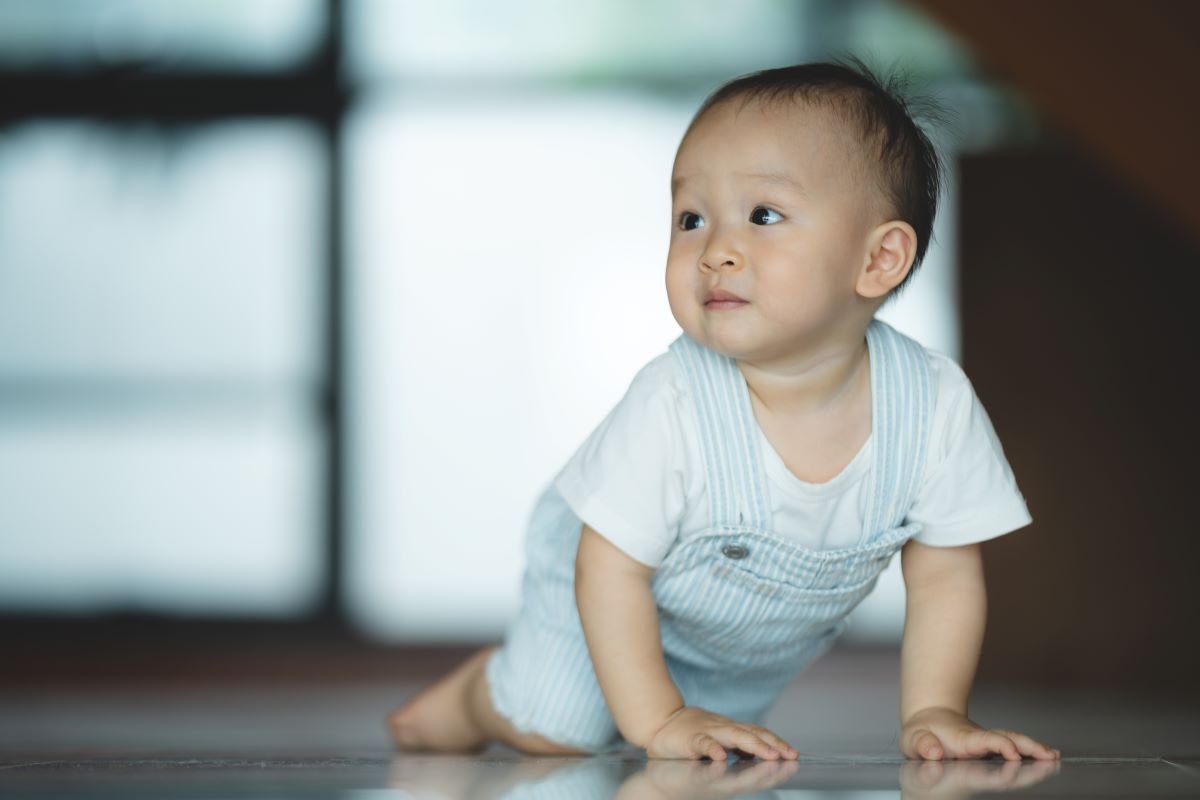
Movement milestones for a 8 month old:
- Most will start crawling either on hands and knees or belly crawl.
- They can sit up independently and may reach for toys while balancing themselves.
- Some babies begin to pull themselves up and stand with the support of furniture.
- Babies may move "cruising" around furniture, walking while holding for balance.
2. Visual and Hearing Milestones For a 8 Month Old Baby
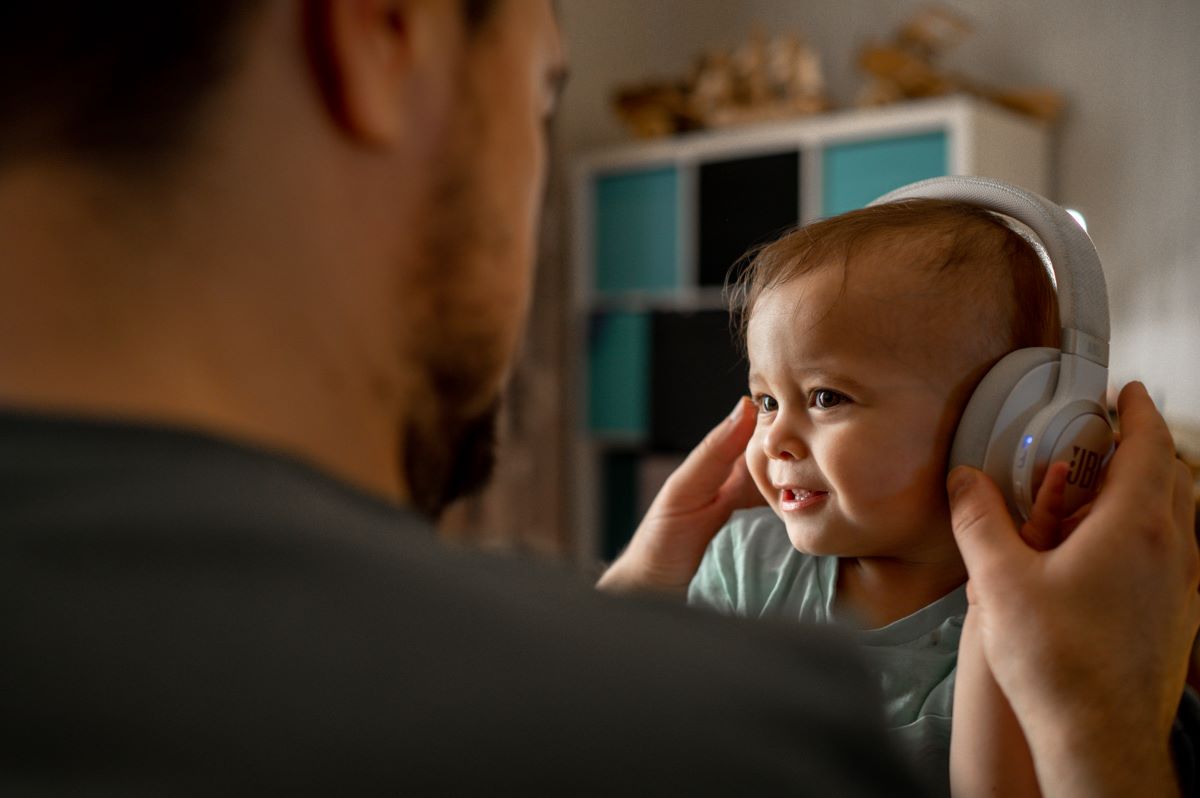
Visual Milestones:
Eight months is when babies undergo highly significant development regarding their visual capabilities, allowing them to interact more with their surroundings and people in general.
- Depth Perception: They can estimate distances more effectively; this leads to better reaching and grasping behaviour.
- Eye Movement Tracking: Baby's eye movements are much smoother when following a moving object, and they can move it from side to side.
- Hand-Eye Coordination: Their coordination has improved; they can reach out to and grab a toy or even pass objects from one hand to another.
Hearing Milestones:
At this stage, infants acquire some crucial skills in audition to further aid them in communication and bonding with others through sound.
- Locating Source of Noise: They would turn their head or look towards you when you call out their name and locate sounds more precisely.
- Interest in Music: They tend to find more interest in music and can respond to rhythms by shaking or bouncing.
- Vocal Mimicry: Babies often attempt to mimic sounds or vocal patterns that they hear from adults or caregivers.
3. Smell and Touch Milestones For a 8 Month Old Baby
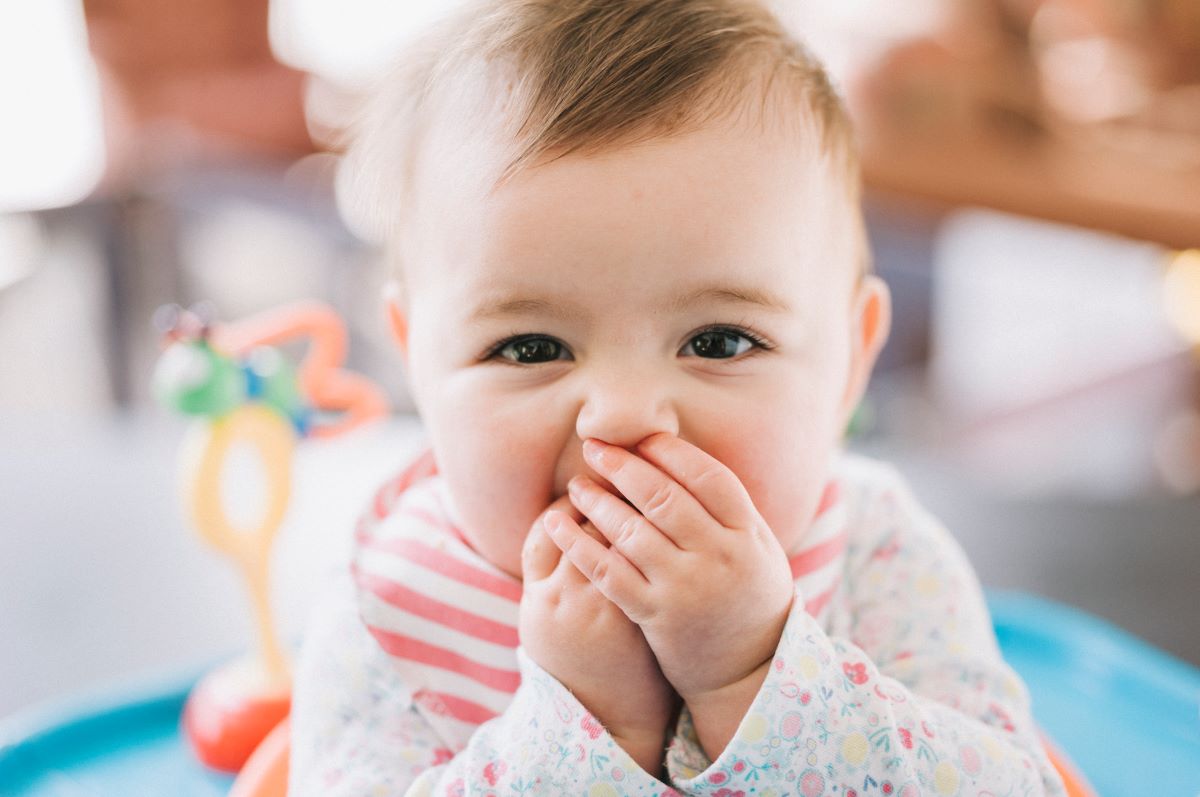
Smell Milestones:
At eight months, children also become more acutely sensitive to certain smells. This sensitivity is significant in aiding their perception of which caregivers belong to them and responding to their surroundings. For instance, they may like familiar smells, such as their parent's perfume or a delicious food smell.Touch Milestones:
At this moment, they apply touch to feel what happens around them, which usually becomes even more relevant for the sense they get from the textures and what is happening with sensations, helping their overall sensory development. They like holding things, squeezing, and handling them in many ways that tend to enforce good fine motor skills.4. Sleep Milestones For a 8 Month Old Baby

At eight months, babies typically achieve key milestones regarding the regularity of their sleep pattern, making routine and more prolonged night sleep bouts more established as follows:
- Longer Night Sleep: Many infants can typically sleep for longer stretches at night - usually 8-12 hours.
- Fewer Naps During The Day: They often require fewer naps and typically can be condensed to two naps a day.
- Separation Anxiety: They may begin to cause sleep disruptions, making it more challenging to settle.
- Healthy Sleep Habits: The child's normalising habits are essential to developing other healthy sleep behaviours.
Effective Strategies to Help Babies Sleep:
- Establish a regular bedtime to regulate the child's inner clock.
- Have a warm bath before sleep.
- Keep the room cosy and easy to sleep in.
- Introduce a safe comfort item like a soft blanket or a stuffed animal.
- Maintain naps short enough to maintain nighttime sleep.
- Feed and keep them whole for the night.
5. Health Milestones For a 8 Month Old Baby
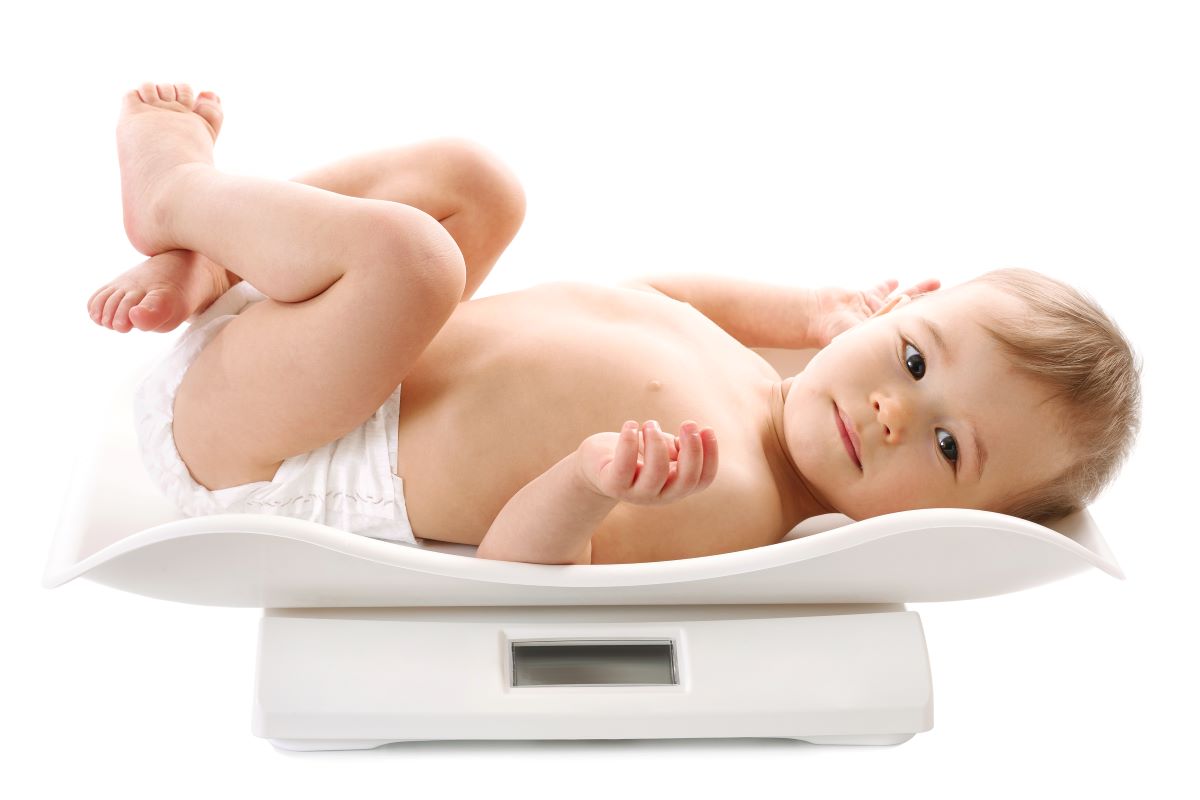
These values represent typical ranges, but individual variations can occur. Regular check-ups with a paediatrician will help ensure your baby is on track with their growth and health.
6. Feeding Milestones For a 8 Month Old Baby
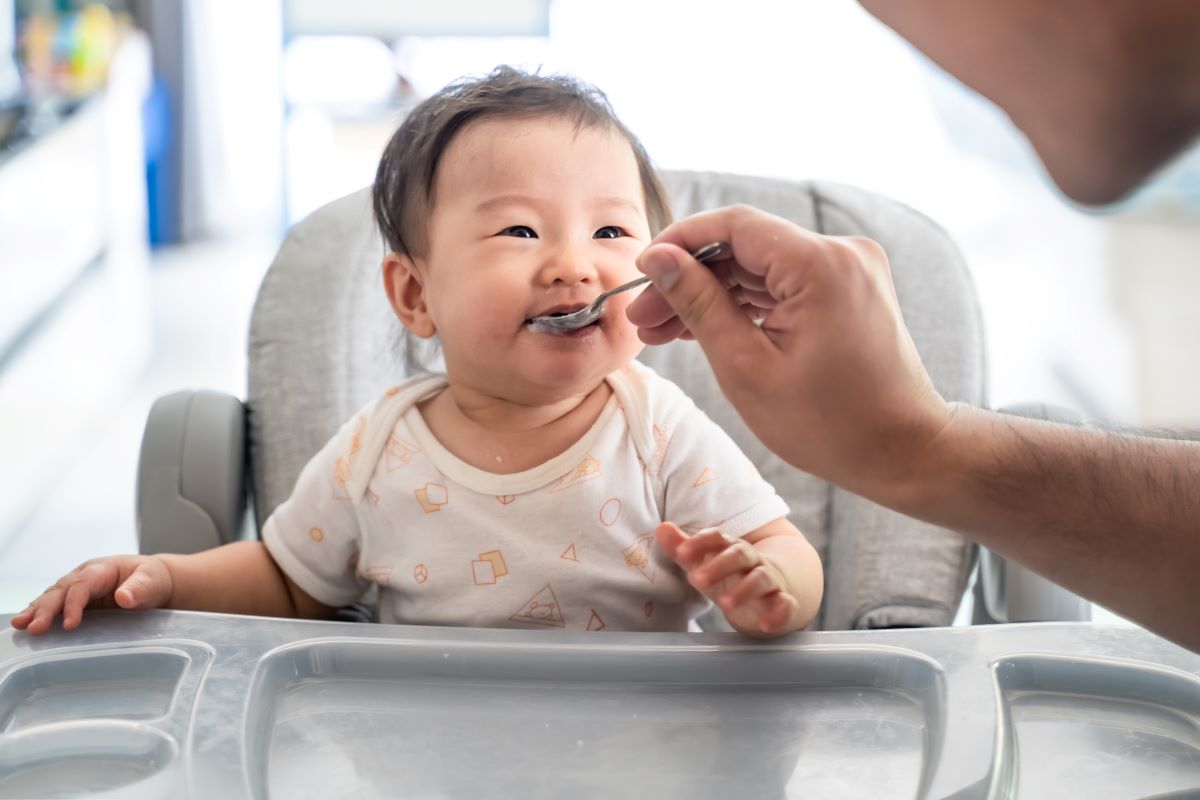
Feeding Milestones for a 8 month old:
- Self-Feeding: Babies reach into and pull small lumps of food toward their mouths as they develop independence.
- Variety of Foods: Their mouth can accommodate a more comprehensive range of textures and flavours, such as soft table foods and purees.
- Coordination of Hands with the Eyes: They will have better coordination to help pick up and manipulate food items.
- Interest in Family Food: The baby can now be interested in what others are eating, wanting to join in with family meals.
Recommended Foods:
Here are some appropriate foods to feed an 8 month old baby:
- Soft, mashed or pureed fruits like bananas, avocados, apple sauce.
- Cooked and mashed or pureed vegetables such as sweet potatoes and peas.
- Iron-fortified cereals, oatmeal, soft bread or pasta pieces.
- Soft-cooked and finely shredded meats, scrambled eggs, or mashed beans.
- Full-fat yoghurt or small amounts of cheese (avoid cow's milk as a drink).
- Small, soft pieces of food like teething biscuits, puffed cereals, or cooked vegetables.
7. Schedule and Routine Milestones For a 8 Month Old Baby
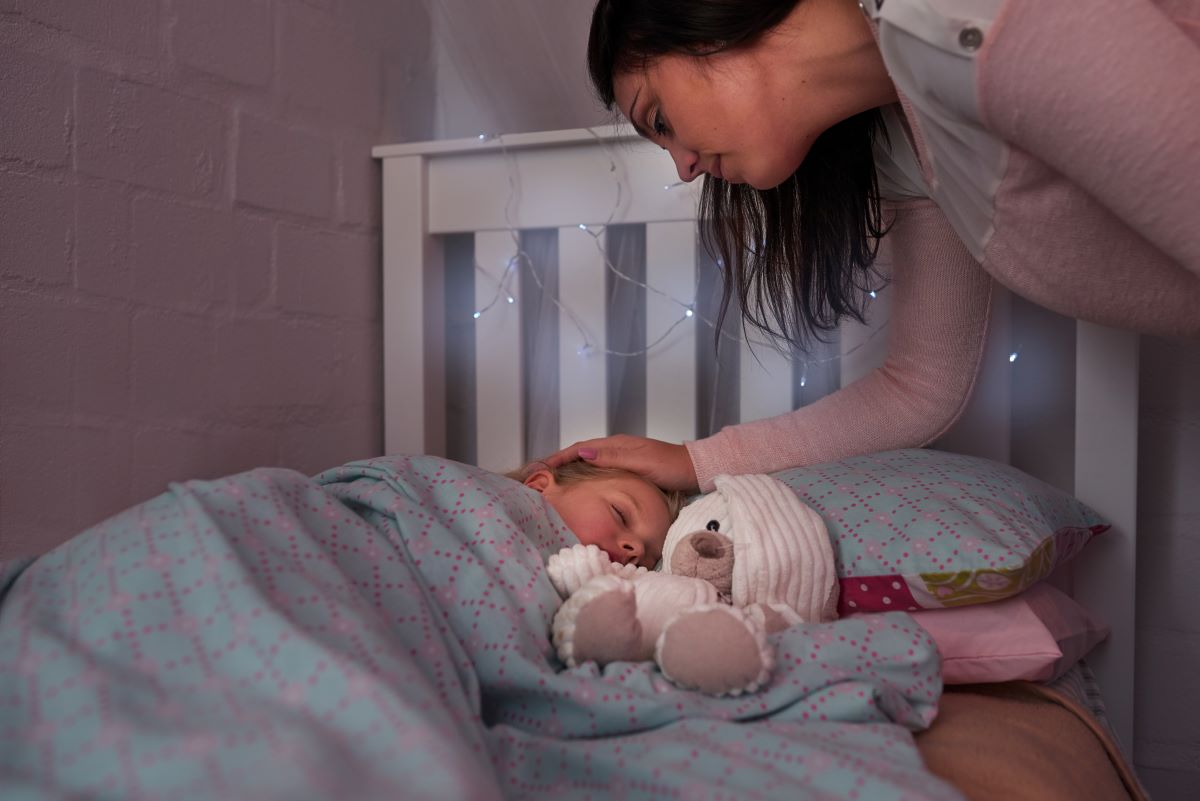
Here is a typical routine for a 8 month old:
This schedule provides structure while allowing flexibility based on the baby’s cues and needs.
8. Cognitive Milestones For a 8 Month Old Baby
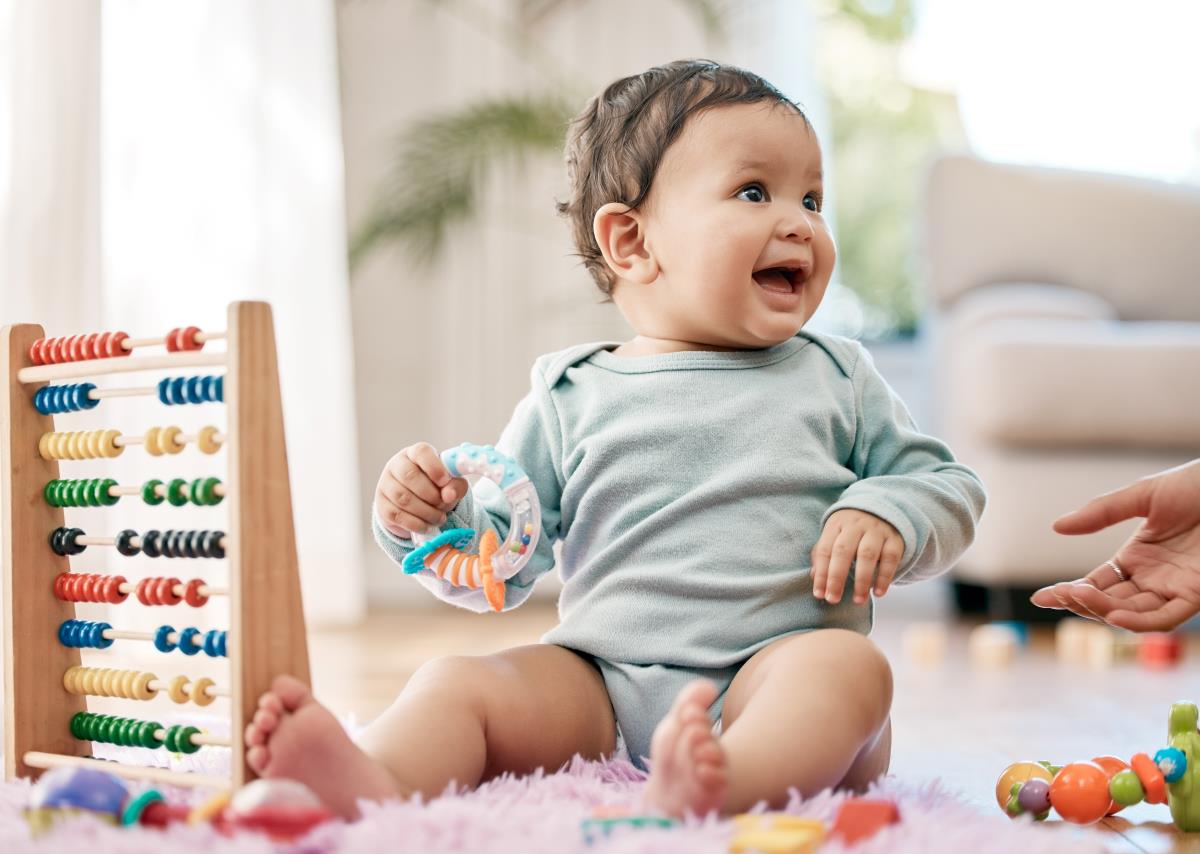
Here are key cognitive milestones for a 8 month old:
- Object Permanence: The infant starts to understand that objects exist even after they move out of sight, which motivates a new level of exploration.
- Enhanced Problem-Solving Abilities: They may develop problem-solving capabilities, like moving around the room to get to a toy slightly out.
- Some Cause-and-Effect Concepts: Infants start learning cause-and-effect concepts, such as shaking the rattle to generate noise.
- Imitation: Imitates simple actions like clapping or waving as he becomes more aware of social interactions.
- Increasing Attention Span: The babies can take their eyes off the activity or toys for extended periods, which signifies profound engagement in their play activities.
9. Physical and Motor Development Milestones For a 8 Month Old Baby
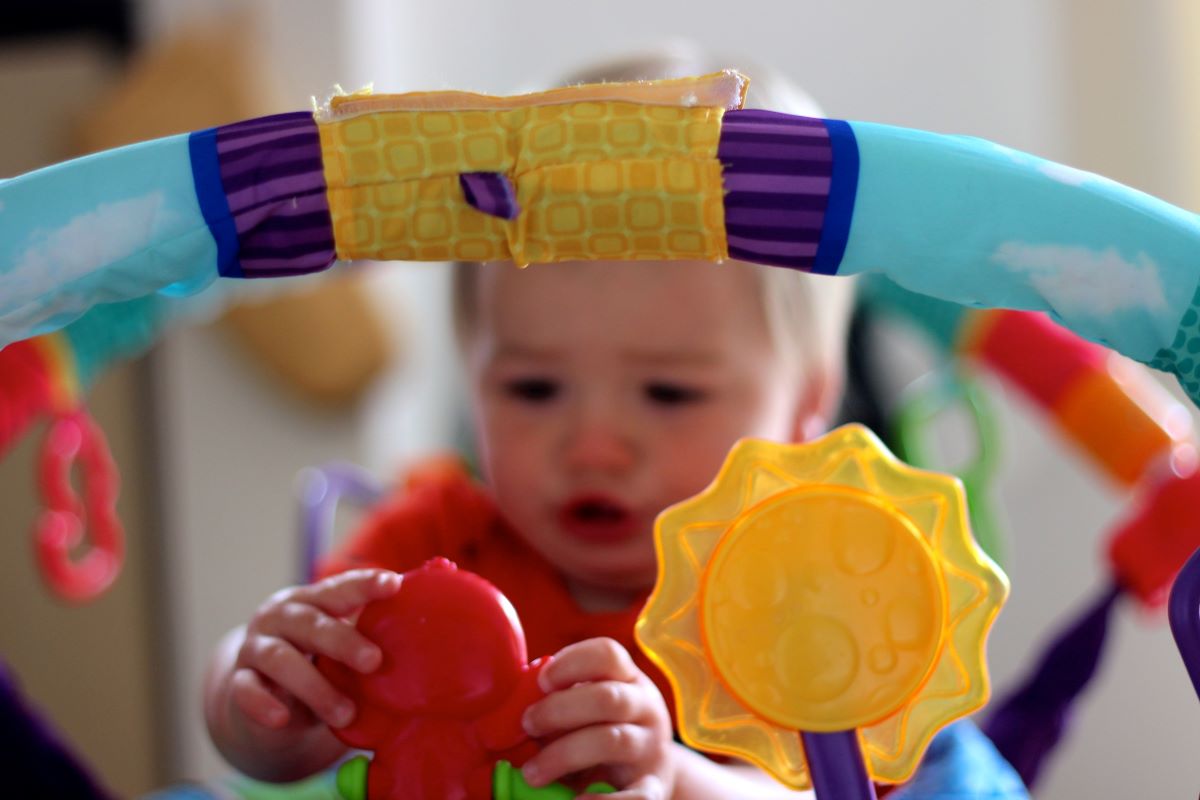
Gross Motor Skills:
Gross motor skills involve moving large muscle groups that point to gross movements, such as crawling, standing, and walking, enabling a baby to explore his environment and develop physical strength.Fine Motor Skills:
Fine motor skills involve playing with the smaller muscles in the hands and fingers. Many babies can accomplish such actions as reaching out and picking up an object and holding on, picking up small objects, and manipulating toys.10. Social and Emotional Milestones For a 8 Month Old Baby
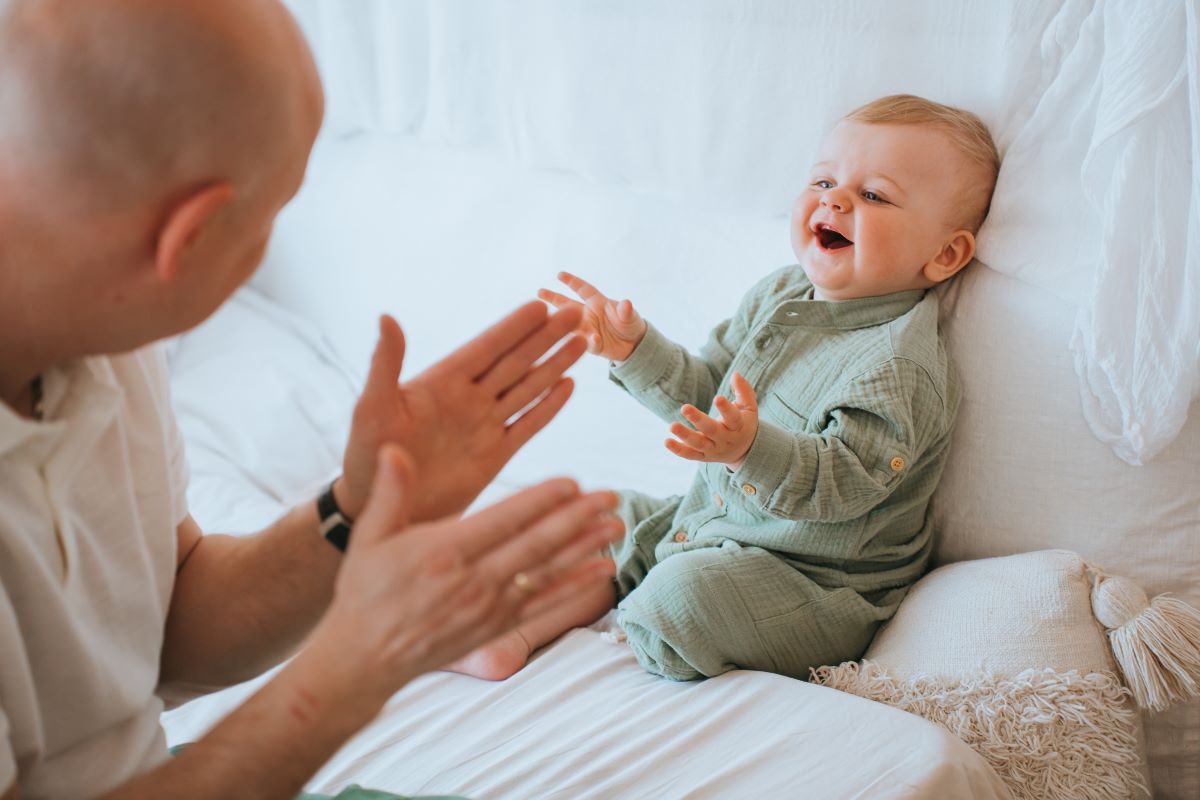
Here are key social milestones for a 8 month old:
- Stranger Anxiety: Babies avoid or display fear towards unfamiliar individuals as a sign of attachment.
- Attaching to Caregivers: They seem to prefer known persons and, at times, get up and go for the comfort of that particular individual.
- Emotionality: Infants begin displaying a more significant number of feelings like joy, pain, and fright.
- Social Referencing: Infants look towards their caregivers to know what to do in specific circumstances; this reflects social insight.
- Playful Interaction: They are typically more interactive while playing in terms of bursting laughter and sharing their fun with other children.
11. Language and Speech Milestones For a 8 Month Old Baby
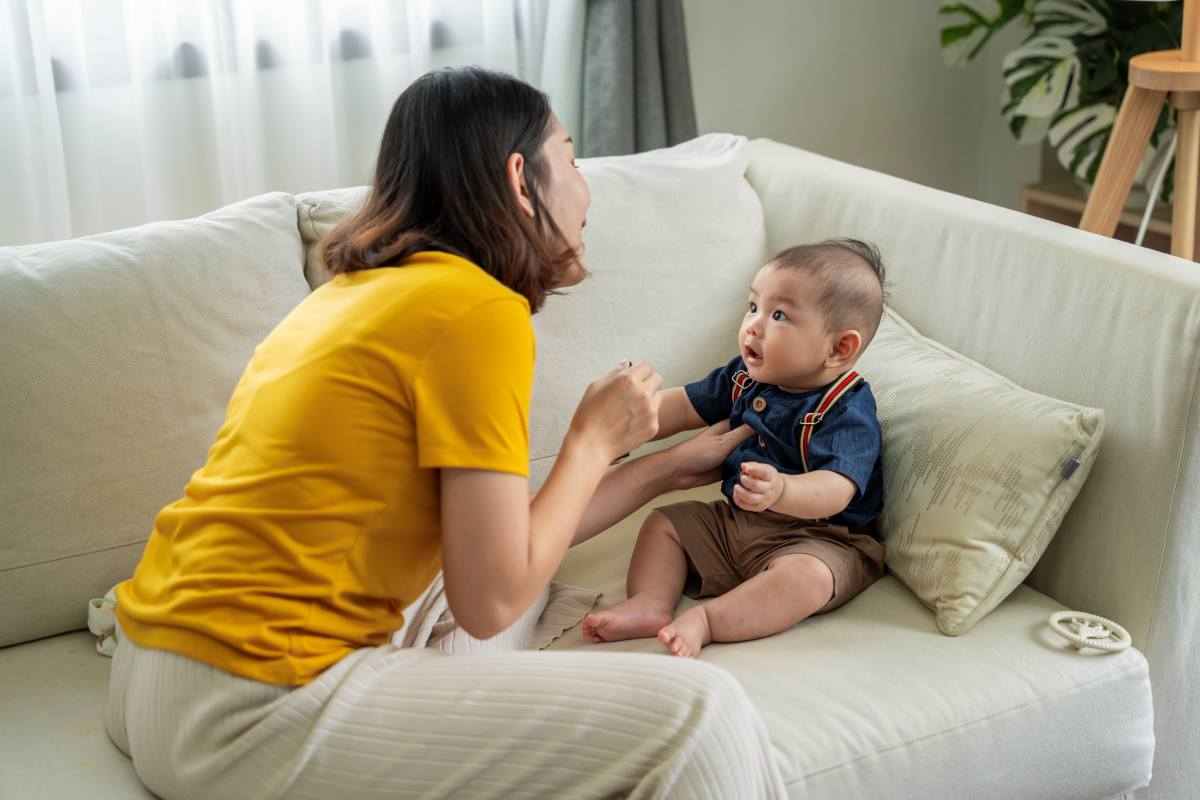
Language and Speech Development Milestones for a 8 month old:
- Babbling: The baby starts babbling with repeated consonant-vowel combinations such as "ba-ba" or "da-da" while playing with sounds.
- Understanding Words: The infants start to understand simple words and phrases, especially the names of familiar people and things.
- Responsive Communication: Infants tend to say back words spoken to them through coos or babbling, indicating that they want to engage in the conversation.
- Gestures: Most babies use gestures like waving or reaching to convey their needs and emotions.
- Increased Vocalisation: They begin experimenting with different pitch and volume and often develop a range of emotional expressions through sounds.
12. Play Milestones For a 8 Month Old Baby
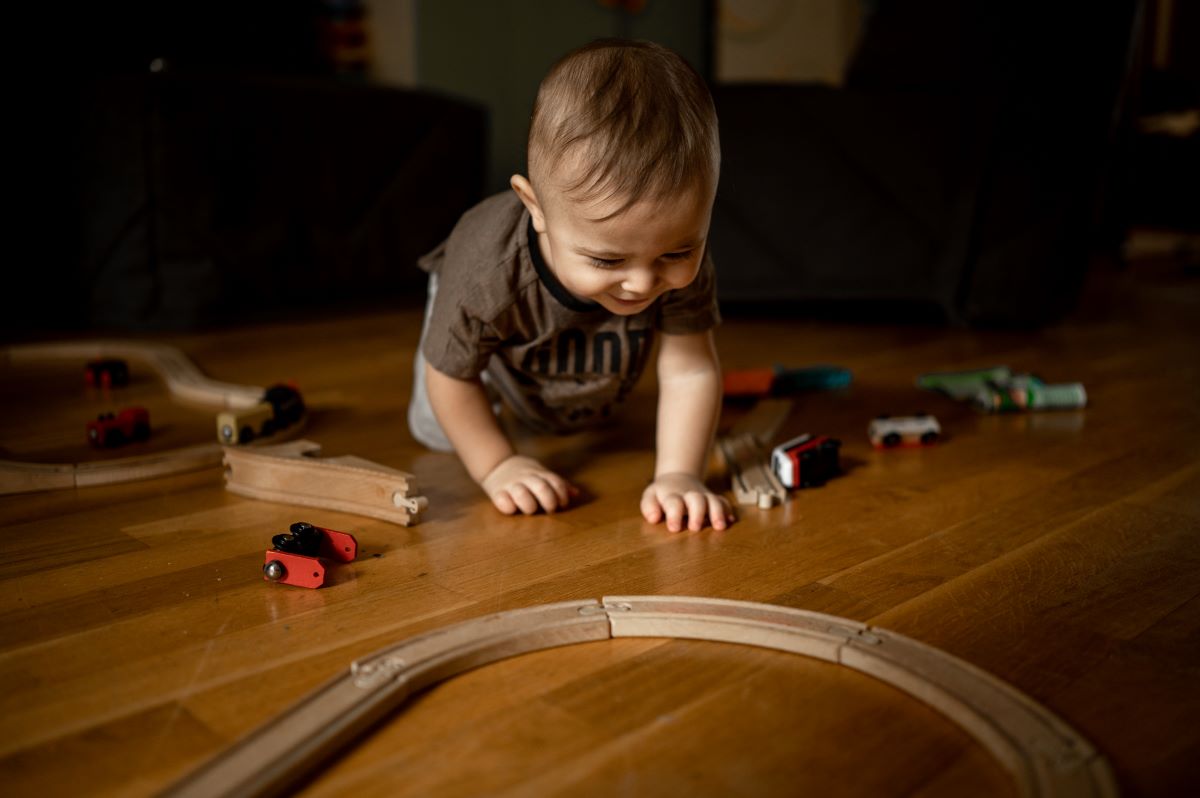
Here are the Play Milestones for a 8 month old:
- Exploratory Play: Baby actively explores the environment and engages all senses with everything they can find in the form of toys and objects.
- Cause and Effect Play: The baby will play with toys that react to their actions. Examples include toys that make noise when pressed.
- Imitative Play: They start imitating easy movements and sounds; an example includes clapping hands or making a sound like other animals.
Different Engaging Activities for a 8 Month Old

1. Tummy Time
This activity is essential in developing the neck, shoulder, and back muscles, hence getting your baby ready to crawl. Play the game with exciting toys or a mirror in front of them. The sessions will first be short and gradually increase as they get comfortable with the sessions.2. Baby Finger Painting
Squeeze some washable finger paint onto the baby's fingertips and allow them to colour an empty canvas. They can spend time with colours and watch a white canvas turn colourful. This will help with colour expression and also keep them seated in one place.3. Sensory Games
Create a sensory bin with non-toxic items like rice, dried pasta, or soft fabrics. Give your child scoops and small containers to encourage exploratory and nuanced motor activities. Be careful now because they have yet to learn to put small objects into their mouths.4. Peek-a-Boo
In this game, children learn about social skills and the existence of things through their unobservable senses. You can play it using a hand covering, a blankie or a toy, face expressions and laughter being the games.5. Stacking Toys
Soft blocks, stacking rings, or nesting cups are fantastic for hand-eye coordination. Demonstrate how to pile or nest the toys and encourage them with cheers to do it repeatedly. It's also a great way to improve spatial awareness.6. Musical Exploration
Use a maraca, tambourine, or simple drum to stimulate your baby with different sounds and rhythms. Shake, bang, or tap them to music to teach auditory skills along with rhythm. Let them bang objects to understand what makes a noise.7. Baby Books
The boards have colourful books with great textures. Reading out loud aids the language development of a child while creating bonding time. They can turn the pages or touch various textures to drive their curiosity.8. Water Play
Fill a shallow basin with just a little water, then add cups, spoons, and floating toys. This activity invites sensory exploration and can be very soothing. However, close adult supervision is essential to prevent accidents.9. Mirror Play
Hang a baby-safe mirror on the floor or hold one before them. Babies love looking at their reflections, and this activity promotes self-recognition and social skills. You might make goofy faces and try to get them to mimic you.10. Bubble Time
Blow bubbles for your baby to see and try to grab. The child develops hand-eye coordination and might laugh and enjoy popping bubbles. Use a baby-safe bubble solution to ensure there is no toxicity in the solution.11. Movement Games
It helps the little one hold onto furniture or your hands and stand or walk while playing. You provide a safe place for them to know their movement, but you encourage them with words, asking them to take a few steps.Safety Tips For an 8 Month Old Baby
Keeping your baby safe is of utmost importance for all parents. Some safety tips for baby care at the age of 8 months are as follows:
Savings & Protection Options for Your Child
How to Support a Baby's Development at 8 Months?
1. Support Physical Activity
Physical activity encourages growth in a child at eight months. Continue engaging in tummy time activities, even though it takes longer now, to strengthen their neck, shoulder, and back muscles, which would help them crawl and reach higher milestones. You can use a toy or a colourful object to encourage them to reach out and grab it.2. Encourage Interaction
Interaction has dramatically enhanced the development of language. Talk to your baby and sing to them throughout the day. Use simple words and phrases to build vocabulary and encourage cooing and babbling. Sharing board books with bright pictures and different textures inviting a touch, they ask their reader to reinforce language skills.3. Improve Social Skills
Social contact can be learned through fun games and positive contact. Games like peek-a-boo are just too much fun for the babies yet help them develop what social cues mean and trust. The suspense leading to the reveal makes it exciting and strengthens your attachment to each other.4. Cognitively Stimulating Skill
Playing is also a way of cognitive development in problem-solving and critical thinking directions. Provide various toys that will illustrate cause-and-effect, such as toys that would react to their action, like push-and-pull toys. Simple puzzles or shape sorters are also great tools for giving them different experiences to connect things.5. Fine Motor Activity
Fine motor skills will also allow your baby to grasp and manipulate objects and objects as they learn about their surroundings. Place safe exploratory toys in the house, such as plastic measuring cups or soft blocks, and encourage grasping and handling. Because of these, ring stacking and cup nesting are significant as hand-eye coordination and dexterity.6. Emotional Development
Emotional development is based on sensitivity in responding to the baby's cues and needs. Observe how they cry, gesture, and change their facial expressions to know what they need. Such activities help establish secure attachment and trust. Let them explore and play independently while keeping a close distance for reassurance.7. Nutrition and Feeding
Nutrition plays an essential role in the development of a baby. Continue introducing various healthy solids with suitable textures for this age. Eat together, encouraging your baby to learn new foods and practice self-feeding. It's crucial for the establishment of healthy eating habits as well as opportunities for interaction and learning associated with mealtime routines.8. Limit Screen Time
Screen time must be limited for an 8 month old baby. Lively interaction is much more effective for development. Involving your child in activities that support physical, cognitive, and social skills, such as hands-on play, reading, and singing. None of these replaces passive viewing, but there is less screen time.9. Set Routine
It may give him security if he knows what happens and when it happens to you. You know what their daily routine is and what to expect. A combination schedule that includes scheduled play time, eating times, and sleep allows the baby to be prepared for what is going on, relieves their anxiety and aids in healthier sleeping patterns.When to Talk to the Paediatrician?
Developmental Issues
Talk to your paediatrician if you notice concern about your baby's physical, social, or cognitive development, not crawling, sitting, or babbling.Constant Sickness
If your child seems sick, has a fever, continues to vomit or have diarrhoea, or appears dehydrated, call your paediatrician.Changes in Appetite or Weight
Changes in your baby's feeding or weight loss may warrant a red flag for underlying severe health issues.Allergic Reaction
If you suspect your baby has an allergic reaction, such as hives, swelling around their face, lips, or throat, or difficulty breathing, seek medical advice.Unusual Behaviour
Any abrupt changes in your baby's behaviour, such as crankiness, listlessness, or withdrawal from social contact.
Vaccine-Related Queries
If you have questions or concerns about immunisations or schedules, your paediatrician can discuss them based on your infant's needs.Sleep Issues
If your baby has chronic or signs of sleep disorders, you can consult with your paediatrician on these issues to find ways to remedy them.FAQs about 8 Month Developmental Milestones
Is it normal if my eight month old baby is wary of strangers?
Can I encourage my 8 month old baby to crawl?
What fine motor skills should my 8 month old baby be developing?
What kinds of toys are best for my 8 month old?
What are the major physical milestones of an 8 month old baby?
How do I know if my baby hits the social marks at eight months?
What language skills are my 8 month old expected to have?
What to expect at 8 months baby development?
What is the intellectual development of an 8 month old baby?
What do 8 month old babies think about?
What is the development and activity during the eighth month?
What is the social development of an 8 month old baby?
What is the psychosocial development of an 8 month old baby?
Which behaviors are expected in 8 month old infants?
Is there a growth spurt in 8 months?
What is the 8-month crisis?
What is an 8 month old baby called?
How fast do babies grow at 8 months?
Important Articles about Infant Developmental Milestones
Latest News
Read More
















